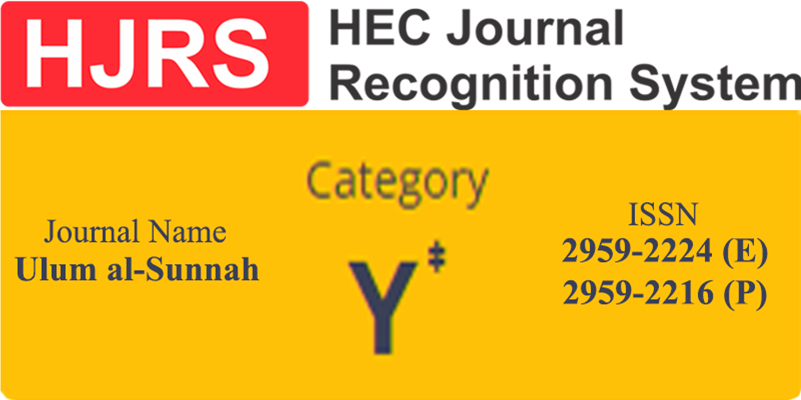اسلام میں انتخاب زوج کا حق ایک تحقیقی مطالعہ
Exploring the Right of Spouse Selection in Islam
DOI:
https://doi.org/10.5281/zenodo.13778110Keywords:
Religion, Marriages, Islam, Relationships, Family lifeAbstract
Islam a dynamic religion, not only confers individuals with the right of spouse selection but this practice is highly valued. This essay explores teachings of Islam regarding this right and its significance in fostering healthy and fulfilling marriages.Islam recognizes the importance of personal choice in marriage and also leads crusades for it.It is evident in Quranic verses, such as Surah Al-Baqarah (2:221), emphasizes the freedom to select a life partner based on compatibility and shared values. Additionally, Hadiths also highlight the Prophet Muhammad's encouragement of individuals to exercise their right to choose a spouse wisely. The right to choose a spouse empowers individuals to make decisions that align with their personal preferences, aspirations, and goals. Islam encourages the importance of mutual consent and open communication in building strong and harmonious marital relationships. By exercising this right, individuals can establish a foundation of trust and understanding within their marriages.Islamic teachings documents principles and guidelines to consider when choosing a spouse. These include seeking compatibility in faith, character, values, and family background. Islam directs individuals to prioritize religious teaching to ensure a strong foundation for shared spiritual growth and mutual support.The right to choose a spouse in Islam is a fundamental aspect of personal agency and empowerment. By embracing this right, individuals can create marriages based on love, compatibility, and shared values.
Downloads
Published
How to Cite
Issue
Section
License
Copyright (c) 2024 Muhammad Farooq

This work is licensed under a Creative Commons Attribution-NonCommercial 4.0 International License.
This is an open-access journal which means that all content is freely available without charge to the user or his/her institution. Users are allowed to read, download, copy, distribute, print, search, or link to the full texts of the articles, or use them for any other lawful purpose, without asking prior permission from the publisher or the author. All articles are available on the internet to all users immediately upon publication. Non-commercial use and distribution in any medium are permitted, provided the author and the journal are properly credited.











 Research Journal Indexed by Google Scholar
Research Journal Indexed by Google Scholar